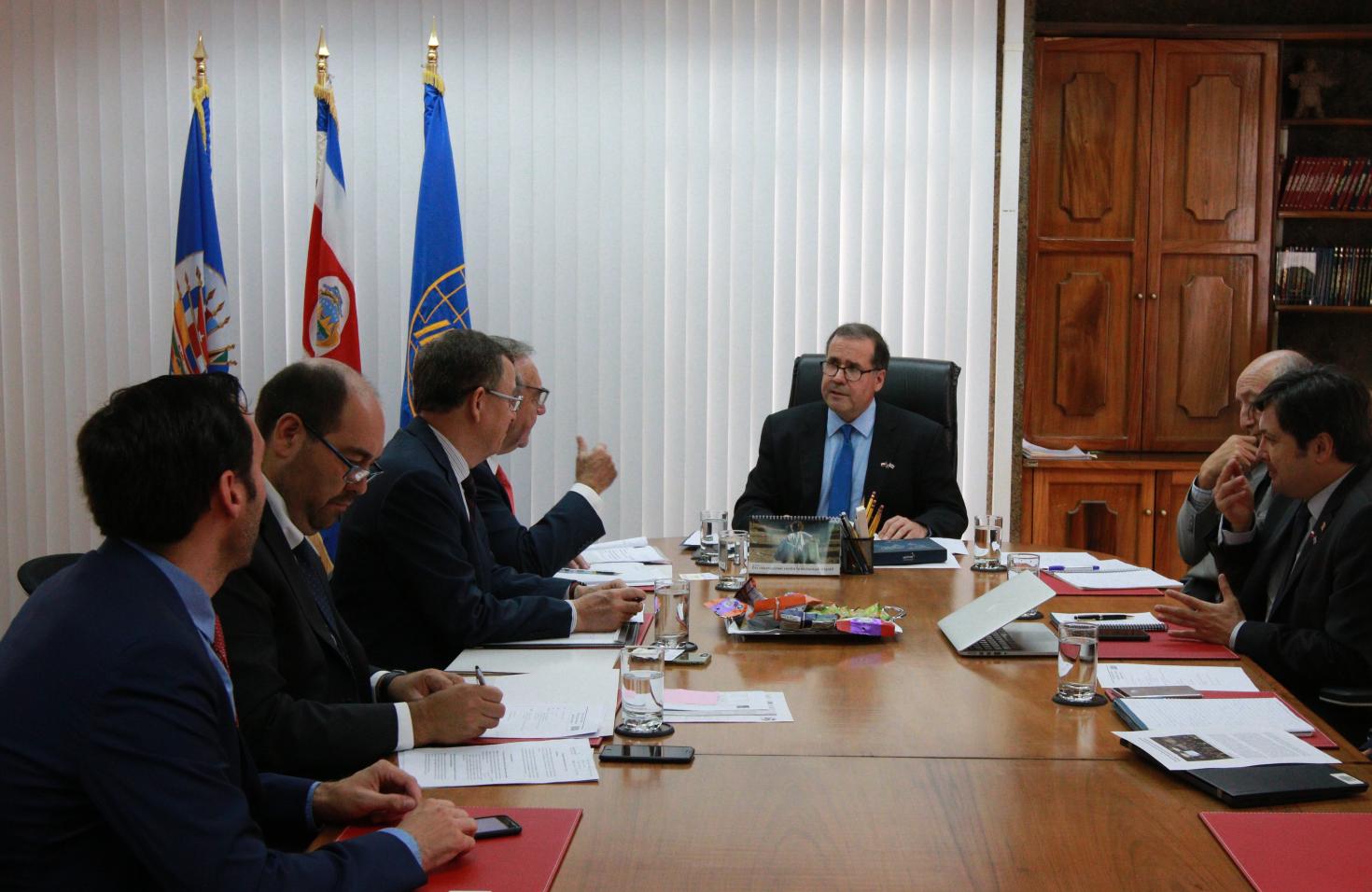IICA and Chile explore cooperation opportunities that would benefit Latin America and the Caribbean in matters related to safety, adaptation to climate change and scholarships for professional

San Jose, 3 May 2019 (IICA). The Inter-American Institute for Cooperation on Agriculture (IICA) and the Chilean International Cooperation Agency for Development (AGCID) will aim to drive agricultural progress in Latin America and the Caribbean in an integrated manner. To this end, the organizations will explore potential joint actions in various areas such as agricultural health and food safety; climate change adaptation and mitigation; and scholarship opportunities to strengthen human talent across the region.
By combining their efforts through South-South cooperation, the organizations will aim to transfer Chile’s renowned experience in matters related to safety, good agricultural practices and rainfed agriculture, among other topics, to countries in the Central American, Caribbean and Andean regions. This would also enable the South American country to revitalize its agriculture sector by implementing initiatives that have proven successful in other countries.
Lloyd Day, Deputy Director General of IICA, and Juan Pablo Lira, Executive Director of AGCID, laid the foundation for potential synergies during a meeting at the Institute’s Headquarters in Costa Rica.
“Chile has the capacity to become a leader in South-South cooperation, given its world-class, technology-based agriculture, as well as its vast experience in promoting agriculture as well as farming in arid, complex regions; we can certainly capitalize on this knowledge in the Central American Dry Corridor, for example. The country also possesses solid experience with respect to agricultural exports,” remarked Day.
“These outreach efforts are important for IICA and its member countries,” he added.
According to Day, the joint efforts will allow for strengthening sanitary and phytosanitary agencies in countries across the hemisphere, as well as for providing technical assistance to a greater number of producers, based on Chile’s record of success in the field of agricultural health.
Juan Pablo Lira, Executive Director of AGCID, noted that Chilean authorities aim to identify good agricultural practices in other regions in order to make them available to smaller scale producers in the country.
Day and Lira agreed on the importance of capitalizing on the scholarship programs of both organizations in order to build the capacities of agricultural professionals in Latin America and the Caribbean.
“We are very interested in training our human resources. In Chile, we view capacity-building as a means ofr boosting the quality of production among small and medium-scale producers, as well as an opportunity to transfer good practices,” explained Lira.
AGCID has a scholarship program with more than 3,000 beneficiaries that provides Chilean and foreign students with various study opportunities, including short courses, Master’s programs and diploma courses. IICA has been executing a similar program since 2012 within the framework of an agreement with the National Council on Science and Technology (CONACYT) of Mexico. The program, which has already benefited more than 1,400 persons, provides scholarships to students in doctoral, master’s or specialized studies programs related to agriculture.
Day and Lira were joined at the meeting by Oscar Alcamán, Ambassador of Chile in Costa Rica; Sebastián Osorio, chief of cooperation matters at the Embassy of Chile in Costa Rica; Pablo García, Director of the Training and Scholarships Department at AGCID; and technical personnel from IICA.
More information:
Lloyd Day, Deputy Director General of IICA.